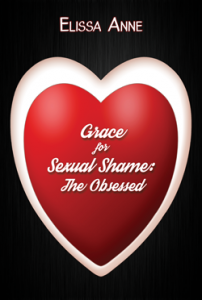It is silly when we think things like:
God doesn’t love the rapist during the act of rape, as though God’s anger and justice and judgement could ever outweigh his love.
God identifies with the rapist as surely as he identifies with the rape-victim.
He understands the thoughts and feelings of the rapist, the circumstances and rational that lead the rapist to committing the act.
And God justifies him!
Just as surely as he justifies you or me.
God justifies sinners in the midst of sin.
He identifies with every lie we tell ourselves.
He understands the hurt that causes us to respond the way we respond.
He knows the reasons as though they were his own reasons –
And he forgives the reasons.
He allows them.
He loves the rapist during the act of rape.
This is not to say he doesn’t love the victim.
He feels every ounce of the victim’s pain and suffering.
He experiences his/her anger and trauma to the nth degree – perhaps even more than the victim him/herself does!
He intimately knows exactly what we go through whenever we are abused.
And he justifies every response, every feeling, every thought:
Completely accepted.
God is within them both: the rapist and the victim.
He loves them to their core and his core entirely.
Does this mean there won’t be a reckoning?
There is always a reckoning – whether in this life or the next.
But the reckoning is not between humanity and God.
God is at peace with the perpetrator and the victim.
There is no separation.
The reckoning is between the offender and the offended.
Both must fully identify with each other, just as God has fully identified with them as individuals.
The victim must enter the mind, will and emotion of the abuser.
The perpetrator must enter the mind, will and emotion of the victim.
They must so entirely understand each other, that no forgiveness can be left unsaid or undone.
Just as surely as Hitler will experience the pain of each and every Jew who suffered in his war, the Jews will also experience the pain that motivated Hitler.
As surely as Ted Bundy will identify with the terror of his rape and murder victims, they will identify with the feelings that drove him to act as he did.
If we think that God doesn’t love Hitler and Bundy, and that he cannot forgive their mistakes, then God can not love you or me or forgive our mistakes.
Because if I lived Hitler’s life, if I were in his mind and reasoned the way he reasoned and experienced all he experienced, I would have done exactly what he did, simply because he did it.
What Bundy was capable of; I am capable of.
Because we are all human.
We all have the same capacity for darkness and light;
Love and hate.
For God to forgive even one offence means he must by nature forgive all offences.
For God to justify one sinner, means he has justified all sinners.
There is no special treatment because one person is more penitent than another, or one resisted the urge to become Hitler while another did not.
We all fail to be sorry and resist evil at some time or another.
This is what makes us equal.
If God truly is love, then everyone is equally loved by God in the midst of any and all evil.
This is the offence of the gospel!
This is the severity of God’s love!
This is hell and heaven and everything in between.
That we would all be as completely unified with one another,
As he is with us!
<3 <3 <3 <3 <3

